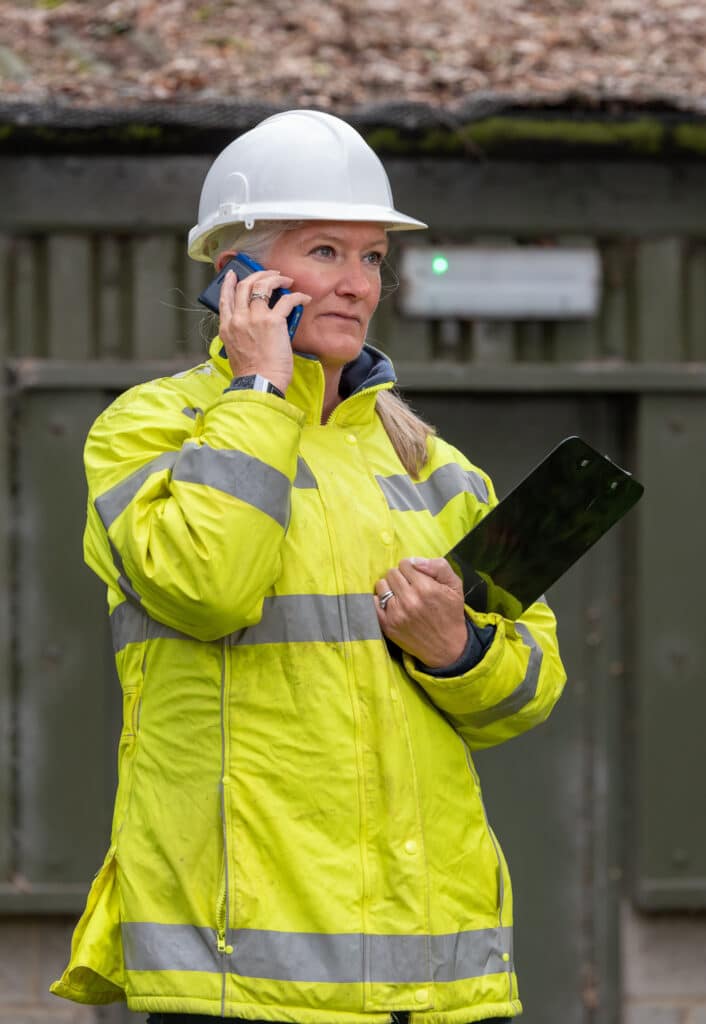Lucy Hind has adapted to working as a consultant for FM clients, having worked in a variety of FM roles throughout her career
Challenging FM industry practices has become a significant factor in the provision of consultancy services by Lucy Hind, following her many valuable industry experiences.
Having launched and run her own successful building services company that delivered a range of hard service options to clients, she has also worked for some of the largest FM businesses – primarily on the client side in pharmaceuticals and healthcare.
Speaking to FM Director about her career, Ms Hind also provides some thought-provoking and insightful comments on a range of current and potential future trends, all of which are based on her previous, wide-ranging industry experience. It should also be appreciated that she worked as a qualified engineer and although the male/female balance is improving, it is still far from being equal and was even further from this level when she began her career and then formed her own engineering business.
Ms Hind has approached each challenge with her trademark positive attitude. With this in mind, FM Director asked her if any stages of her career had proved more significant than others, or if it had been a natural progression.
“I think that my career has been quite fluid in the latter years, initially I was quickly moved from a hands-on building services role into leadership and I think this was where the change started,” she says.
“I would say that I have had to work hard for my positions and I have had to show expertise and prove that I could do a role prior to me being awarded one.”
“I think we have to work harder but the change is afoot and it is becoming more obvious”
She adds that there is currently more evidence emerging to show that more women are working in roles traditionally occupied by men, although more needs to be done to ensure this trend continues. “I think we have to work harder but the change is afoot and it is becoming more obvious with senior leadership roles now being taken on by females in all aspects of business,” she says.
When asked how companies should create more diverse workforces, she replies that she can see definite signs that this is now happening in various areas of the FM industry. “I think the pandemic has helped with this, and dare I say the world that we knew of business is changing with more flexibility and a changing mindset, which aids the equality and diversity challenges that have potentially been seen in the past.”
Industry links
Perhaps one of the most valuable lessons her varied career has taught her is the value that can be created when companies and business partners establish true, collaborative working relationships. This will usually apply to FM clients and their relationships with service providers, and Ms Hind expands on this further.
“This is a key one for me and this is a definite yes,” she continues. “If the balance between partnership and equal benefit can be met, a real relationship can be achieved that aligns and cements the benefits and service delivery. A win-win for all.”
“I would suggest it is like a marriage and it’s about the people and striking the right team with reflecting values that make it work.
This form of working partnership could truly revolutionise the FM sector,” she says.

Having previously worked in both the private and public sectors of the FM industry, the main difference she has seen is the creation of PFI contracts, some of which have been the subject of negative coverage within the national media.
“Currently I think we have had PFIs some of which have worked and others that maybe have been seen to be controversial, but on the whole, I think that this style of working is akin to the vested contract approach,” she says.
Added value
Those wishing to improve the situation should seek to work with like-minded organisations that share the desire to create the added value seen in many areas of the FM sector. If this can additionally include a business-first approach, further encouraged by the creation of the best cultures and working environments, the application of effective communication between all stakeholders and support for all team members will see the desired results delivered.
One of the many areas of discussion within the FM industry is whether this is continuing to work ever closer with the commercial real estate sector and Ms Hind states that she sees the two industries as a single entity. “But that is what I have always worked within so my lines in my working life have never been blurred with conflicting departments.
“It is key to success and RICs are currently reflecting this in their course material where FM is becoming an important part of the curriculum,” she says.
Another notable development within the industry has been the emergence of environmental and social governance (ESG), which has become an important element within competitive tenders and contractual agreements. Ms Hind states that she feels FM has always been at the heart of corporate social responsibility (CSR) and sustainability from a number of viewpoints.
Environmental and social governance
The various perspectives this incorporates range from welfare, energy and systems to care of the environment. “ESG is the new outline of this and things like social value, the circular economy, governance and compliance are what an FM client continues to consider and work towards on a day-to-day basis,” she continues.
“I think the new push is going to help FMs, but I truly do believe that the sector was already pushing this within the organisations in which we work. This may open up some further opportunities and even assist into the future for the FM teams,” she says.
Ms Hind provides more expert comment on how companies and individuals within the FM sector can work together to deliver more value and appreciation of its potential.
“Many years ago, I worked for an organisation that had people like me going into their current client portfolio to talk about updates in industry, changes to regulations and areas of improvement around energy and the savings this would create,” she continues. “This element of contract management and roles for individuals has been removed from organisations and the view is much more towards financial performance.
“Consolidation should be given to working with clients and providing added value and information as this in course can expand a portfolio without having to seek additional clients, it can cement a relationship with a customer and add longevity to a contract.
“Would you really want to lose the intelligent supplier that updates you on industry developments, advises on changes in regulations, comes up with ideas to assist the business and regularly delivers wider than the remit they hold? Would this not be the supplier we would all like to work with and expand services with?” asks Ms Hind.
FM Director asks whether she believes that the methods of procurement adopted by FM clients should be changed, adapted or improved in the drive to deliver more value within contractual agreements.
“I would say yes and no – we need to think about the way we procure in potentially a different way – and yes we need the guidelines, but there is more to consider,” she says.
“Further considerations should include the partnership approach we have discussed, relationships and building the right team, encouraging the correct values, understanding of expectations and flux in the economy, with others also included depending on the needs of the stakeholders,” Ms Hind concludes.




